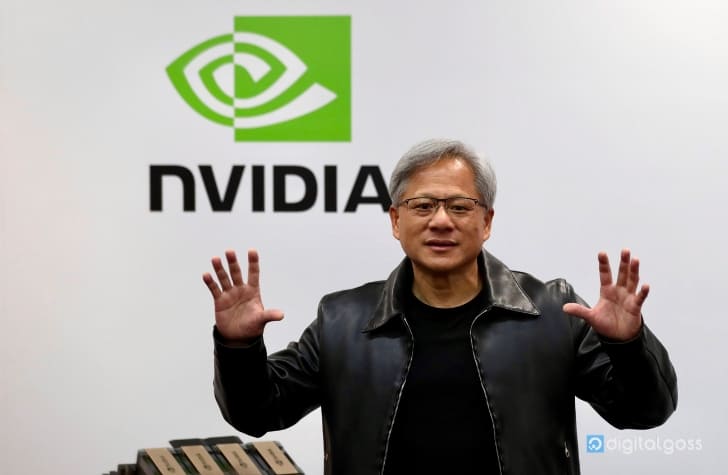Nvidia, the leading AI chipmaker, saw its shares surge over 5% on Tuesday, following a significant market slump that saw the company’s value plummet by $430 billion. This marked a rebound after a challenging period where Nvidia’s stock dropped nearly 13% from its peak on June 18.
Nvidia’s market capitalization reached $3.34 trillion on June 18, briefly making it the world’s most valuable listed company. However, the company’s value has since declined to $2.91 trillion, placing it behind Microsoft and Apple, which have market caps of $3.33 trillion and $3.19 trillion, respectively. The decline included a 6.7% drop on Monday, capping a three-day sell-off driven by cooling investor enthusiasm over Nvidia’s role in the AI revolution.
Analysts attribute the recent volatility to the rapid rise in Nvidia’s stock earlier this year. Jochen Stanzl, chief market analyst at CMC Markets, noted, “What we see with Nvidia is typical volatility, which is expected when a stock rises as quickly as Nvidia’s did. A lot of good news has been priced in. Now investors have started to take profits.”
Jim Reid, a research strategist at Deutsche Bank, echoed these sentiments, pointing to signs of overexuberance in the market over the past month. Despite this, the broader market has remained relatively stable, with gains in sectors like energy, financials, and utilities suggesting investor confidence in the overall economy.
Nvidia is part of the “Magnificent Seven” — a group of mega-cap tech companies that have significantly outperformed the broader market. The S&P 500 index rose 24.2% in 2023, compared to the average 111% rise in the stocks of these seven companies. However, Deutsche Bank noted that the US stock market is now among the most concentrated in history due to these companies’ dominance.
The decline in Nvidia’s stock has had a broader impact on US equity returns, with the S&P 500 closing down 0.3% on Monday and the tech-heavy Nasdaq dipping 1.2%. Despite this, Derren Nathan, head of equity research at Hargreaves Lansdown, emphasized that the wider market has not been significantly affected by Nvidia’s volatility.
Tom Plumb, CEO of Plumb Funds, described Nvidia’s recent performance as a “normal correction” for a company that has seen substantial gains and publicity. He remains optimistic about Nvidia’s long-term prospects, provided the company’s business fundamentals justify the stock’s momentum.
The options market showed bullish sentiment towards Nvidia, with call options outnumbering puts by 1.4-to-1 over the last three sessions, though this was a decrease from the previous 1.6-to-1 ratio. Short sellers gained $4.97 billion during the stock’s decline, but retail investors have likely been buying the stock on the dip, according to Mario Iachini of Vanda Research.

